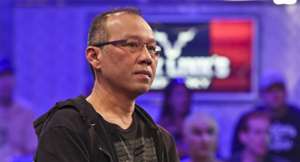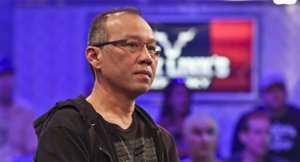Additional Paul Phua Investigation Details Released
A lengthy defense submission supporting allegations of illegal, warrantless searches connected to the Paul Phua World Cup sportsbetting case at Caesars Palace last summer includes several pieces of new information, detailing many of the tactics used and findings obtained in the investigation. Authorities arrested Phua and seven others last July over allegations of illegal gambling being conducted out of three luxury suites at Caesars, purportedly processing roughly $300 million in illegal sports bets through high-speed internet connections the group demanded be installed in the Caesars villas.
 The defendants’ high-powered attorneys battled back against the indictments last week, after obtaining evidence that the three FBI agents and others involved in investigating the unusual activity going on had apparently sidestepped “right to privacy” laws and intentionally ignored seeking proper search warrants. The agents also entered the villas on several occasions, falsely disguised as service technicians, and may even have falsified numerous documents connected to the case.
The defendants’ high-powered attorneys battled back against the indictments last week, after obtaining evidence that the three FBI agents and others involved in investigating the unusual activity going on had apparently sidestepped “right to privacy” laws and intentionally ignored seeking proper search warrants. The agents also entered the villas on several occasions, falsely disguised as service technicians, and may even have falsified numerous documents connected to the case.
The latest developments in the Paul Phua investigation include the release of information ranging from the constant monitoring of the “whales” during their stay by Caesars to the group’s other activities, including massive lines of credit and even the backing of other gamblers into the 2014 Big One for One Drop charity poker tournament.
Whether or not the case gets tossed — as it probably should, given the extreme and likely illicit measures investigators used to obtain much of the information — the latest defense submission provides extra information beyond that included in the initial complaint.
Only 1 of 3 Villas Used as Alleged ‘Wire Room’
Investigators made prominent claims that the three villas occupied by various members of the Asian group (including mainland China, Hong Kong and Malaysia citizens) were all involved in actively processing the illegal wagering transactions. That no longer appears to be the case; the recent defense motion includes evidence that while all three villas — 8881 (called “Hadrian”), 8882 (“Trajan”) and 8888 (“Constantine”) –received special and redundant high-speed internet access, it was only being used in the manner described in the complaint by the occupants of Villa 8888. Villa 8888 (note the lucky “888” number in Asian culture) was registered to Hui Tang, another of the defendants.
Villas 8881 and 8882, respectively, also had the high-speed hookups, but they seemingly were being used only occasionally for internet access, and more often just to watch the World Cup games (and, perhaps, other sports) at the heart of the illegal gambling-business allegations. Those other two villas were the ones registered to Richard Yong (proper name Seng Chen Yong) and Paul Phua (proper name Wei Seng Phua) respectively. Yong, according to the latest documents, coordinated the initial reservation of the semi-private villas for several weeks of use by the extended group.
The villa initially came under Caesars’ suspicion around June 22nd, according to e-mails released, in particular Villa 8888. The villa was originally outfitted with eight (8) DSL lines via Vegas provider Century Link, with each work station including a VOIP phone, plus cable access via Dish TV, Direct TV, and Cox. The occupants even complained at one point that some of the signals received by the equipment lagged behind others. Early reports collected by Caesars suggested that eight computers, each with three monitors, were being used in the villa, but by the time of the the arrests in July, perhaps non-coincidentally near the conclusion of the FIFA World Cup, only five such work areas were present.
Much of the adding of internet access was outsourced to a Utah firm at significant extra cost as well — $22,000 versus $6,000 the services would have cost if provided via in-house means. All of the expenditures were approved by a high-level Caesars marketing rep working closely with the Asian gambling whales.
High Visitor Access in Villa 8888
While (only) eight people were arrested, far more than that were frequenting the villas during middle and late June and early July, when the alleged illegal activity was occurring. It’s the relationships between all of the defendants and others, including shared credit (below), that resulted in the searches and arrests involving the other villas and occupants.
According to one of the supporting documents, Caesars special-investigations manager Paul Urban quietly accessed door and key records for Villa 8888, and learned that 19 keys had been issued. Caesars had less success in determining who exactly possessed the keys, since many of them were picked up by “marketing” representatives.
Over $93 Million in Casino Credit Issued
The various high-rollers and their entourage received extensive credit from Caesars during their stay. Caesars issued more than $93 million in casino markers to 27 different members of the large group, including $30 million to Richard Yong and $16 million to Paul Phua. Yong and Phua received multiple credit installments, since $9 million was, seemingly, Caesars’ internal limit on any single credit issuance. The group’s leaders then distributed the casino credit among their group, according to no particular pattern.
As for the front money, Yong wired roughly $4.96 million to Caesars, for various gambling purposes, and also provided another $4 million in certified checks drawn on the Bank of Macau.
More Poker Connections — Big One for One Drop Buy-ins
Yong’s and Phua’s connection to poker within the confines of this case had more to do than just being integral elements of the famed Macau high-stakes cash games, which appear to be on indefinite hiatus following Paul Phua’s arrest in Macau just prior to the Caesars fiasco. Yet the documentation shows that Yong’s wires and cash transfers to the casino were used to pay the $1 million entry fees of at least three participants in the WSOP’s early-July “Big One for One Drop” charity event.
The documentation maintained by Caesars shows that Yong provided Big One backing for German pros Phillip Gruissem and Igor Kurganov. Gruissem and Kurganov have also played in the big Macau games.
Another Asian businessman, Stanley Choi, received his $1 million Big One entry fee from another of the case’s eight defendants, Yung Kueng Fan. An e-mail correspondence sent on behalf of Fan to Caesars execs Ty Stewart and Kristopher Hartwiger confirms Choi’s participation and backing from Fan, with Caesars confirming as well, writing in part, “… bring Mr. Choi over to the main cage to draw down the funds and then take to WSOP cage for registration… .”
Richard Yong is confirmed in the documentation as, at one point, planning to take part in the One Drop tourney, but Yong, Paul Phua and Chun “samrostan” Lei Zhou all pulled out of the event after initially planning to play. In early July, renowned sports bettor Haralabos Voulgaris stated in an interview, “A lot of the Asian businessmen did not play, because they had some dispute with Guy Laliberté about a private game that happened. It was not resolved in their favor, so they all pulled out.” The pullout was regarded as part of an ongoing disagreement over a bad debt with OneDrop chairman Guy Laliberte.
Nonetheless, it appears that Yong and Fan honored their existence to back the others in the One Drop event to whom they had previously made commitments. Caesars marketing rep Maggie Gong, working on behalf of Yong, wrote to Ty Stewart and Michael Grey, “Dear Ty and Michael, Mr. Richard YONG (Seng Chen) would like to transfer his front money of $2M to the below two customers for the ONE DROP POKER GAME. Please kindly let me know the paper work which Mr. Yong needs to sign to transfer this $2M front money for his friends’ ONE DROP POKER GAME. — Alexander [Philipp] Gruissem, Igor Kurganov.”
The Big One event, which later became notorious for victor Daniel Colman’s post-win boorish behavior, didn’t go well at all for Yong, Gruissem and Kurganov. All three of the Asian-backed players busted out on Day 1 of the event.
The 14K Triad Allegations
The major stories immediately following the arrests of the eight defendants prominently quoted a Nevada United States Attorneys Press release that stated that Paul Phua was a prominent member of the 14K Triads, an Asian-based organized crime ring specializing in, you guessed it, sports wagering. The additional documentation released in the defense’s latest submission also makes it clear that Richard Yong was also described as being a 14K Triad member, though any affiliations regarding other defendants (including Hui Tang, in whose name the Villa 8888 rental was placed) have not been made.
However, Caesars investigators and state and federal agents were aware of the Macau arrests just prior to the group’s arrival in Las Vegas, and coordinated efforts with officials in Macau and Hong Kong to learn exactly who might have accompanied Phua, Yong and Hui Tang to Las Vegas.




















COMMENTS